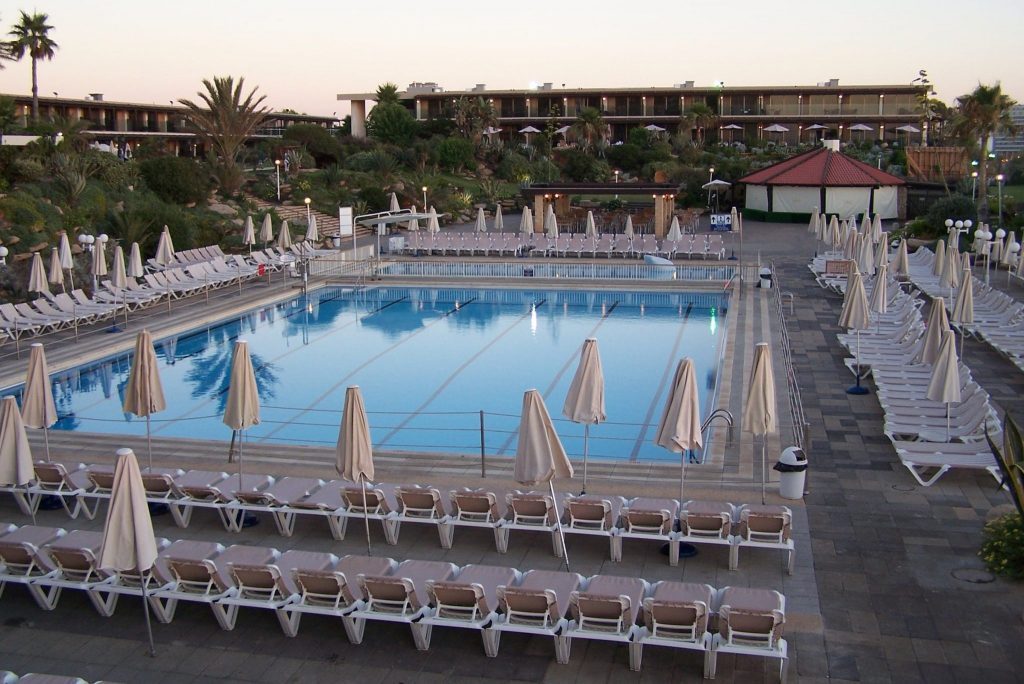Skift Take
The American Hotel & Lodging Association continues to outline why it needs Washington to help the struggling hotel sector. The next four weeks are a make-or-break moment for dealmaking on Capitol Hill until after the U.S. presidential election.
The U.S. hotel industry is still in a state of catastrophe six months into a global pandemic and at the end of what would normally be the busiest months of travel.
Hotel reservations heading into the upcoming Labor Day U.S. holiday weekend are down 65 percent compared to last year, reports travel technology company Amadeus. Roughly 40 percent of U.S. hotel employees are still without a job.
The industry needs federal assistance to survive the crisis and get through years of uncertain travel demand, according to a report released Monday by the American Hotel & Lodging Association.
“If we don’t see help soon, all our worst fears are going to be realized,” American Hotel & Lodging Association CEO Chip Rogers said. “It’s more critical than ever. We see summer winding down and a number of places where leisure activity is beginning to wane.”
While the AHLA report notes the hotel industry has improved from its historic rock bottom performance levels of March and April, the trade organization still anticipates the hotel sector will be among the last industries to recover from coronavirus.
The hotel industry has added back jobs over the summer, but hotel unemployment remains at 38 percent compared to the little more than 10 percent national average.
Many hotel owners are also still under financial distress despite the generally positive trend in occupancy recovery to U.S. hotels. Nearly two-thirds of U.S. hotels are operating at or below a 50 percent occupancy level, which the AHLA says is below the occupancy threshold many hoteliers need to pay off debt and break even.
An STR report from earlier this month showed all U.S. hotel sectors reported varying degrees of profitability in July amid average U.S. hotel occupancy surpassing 50 percent for the first time since mid-March. But Rogers emphasized Monday that hotels in urban centers are still struggling.
“It is true some of the limited-service hotels and full-service hotels in specific markets are at breakeven, but in your urban markets, where most of your jobs are, they’re a long way from breakeven,” he added. “If we want to get people back to work, we have to find a way to help those hotels survive until demand comes back, which may not be until sometime next year.”
If hotels did see a brief flash of summer profitability, analysts still cautioned the industry is still vulnerable to further performance duress in the coming months due to less leisure travel during colder months. Even the typically strong summer travel season has taken a major hit during the pandemic.
Thirty-three percent of Americans say they have taken an overnight vacation since March, according to the AHLA. Only 38 percent say they are likely to take one by the end of the year.
Travel groups like the U.S. Travel Association and even Arizona Republican Senator Martha McSally have proposed tax incentives to boost those numbers and get Americans traveling again.
“The only way to get those jobs back is to get people moving around the country again, and the only way to do that is to incentivize travel,” said Tori Emerson Barnes, U.S. Travel Association’s executive vice president for public affairs and policy, in June.
But Rogers is less optimistic on a tax incentive being included in the next round of federal stimulus.
“We did get a lot of pushback from officials on travel tax incentives at this point,” he said. “Elected officials are concerned with still trying to get past the dangerous virus stage.”
Talks between the two major political parties regarding the next round of coronavirus economic relief stalled this summer.
But Rogers and other hotel leaders have rallied around three key items: the need for liability protection against coronavirus exposure lawsuits, an extension of the small business loan Paycheck Protection Program that expired at the end of June and still has about $130 billion at its disposal, and further ways to pump liquidity into the industry like making tweaks to lending programs where hotel owners would qualify.
The AHLA chief executive still thinks it is possible to get a deal done now that both major political conventions have passed. But time is running out before most political leaders spend less time in Washington and more time on the campaign trail in the final weeks before Americans head to the polls in November.
“If [a deal is] going to happen, it’s going to happen in the month of September,” Rogers said. “Every day that goes by, there’s a hotel closing its doors for good. We have to find a way to stop that from happening.”
Have a confidential tip for Skift? Get in touch
Tags: coronavirus, coronavirus recovery, str
Photo credit: Limited profits made from summer leisure travel aren't enough to sustain the U.S. hotel industry through the winter, the American Hotel & Lodging Association warned Monday. יום-טוב / Wikimedia
